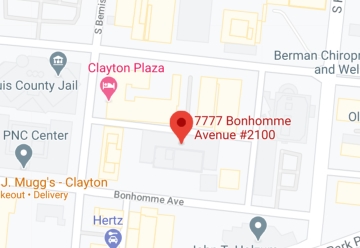The Difference in Taking your Case to Trial vs. Settling

If you’ve been injured as a result of someone else’s negligence, you likely suffered monetary losses, such as medical expenses, lost wages, and property damages. You may also have experienced non-monetary losses, such as the pain and suffering you’ve endured as a result of your injuries.
The insurance company representing the negligent party may offer you a settlement. The question is, should you agree to the settlement or take your case to trial? If you decide to accept an out-of-court settlement, you will receive compensation, and your case will never go to trial. If you go to trial, you may win more compensation, but you also face the risk of losing the case.
Keep reading to learn more about the difference between settling and taking a case to trial and the benefits and drawbacks of each option.
What Is a Settlement?
A settlement is an agreement that resolves a dispute between parties before their case goes to trial. In a personal injury case, a settlement is usually reached between you (the injured victim) and the party responsible for paying you compensation for your injuries and losses. That party is usually the insurance company of the person, company, or other entity who caused your injuries.
The attorney representing you will negotiate with the at-fault party’s insurance adjuster and try to reach an agreement on the terms and amount of the settlement. The court sometimes approves a settlement agreement, so if the terms are not complied with, the court can enforce them through a judgment.
How Long Does the Settlement Process Take?
No two settlement negotiations are alike. The time it takes to reach a settlement can vary widely depending on many circumstances.
To build your case for receiving a maximum settlement, your attorney will investigate every detail of the incident to determine liability and the extent of the compensation you may be owed. They will examine medical reports, eyewitness accounts, police reports, and much more. Then, they will issue a demand letter for compensation and conduct numerous calls and meetings to negotiate favorable terms on your behalf.
If your case is fairly straightforward, this could all potentially be done within a couple of months. However, if your case is more complex, it could take months or even years. For example, if your injuries are severe, your attorney will likely want to wait until you reach maximum medical recovery (MMI), so that they can accurately determine the full extent of your losses.
What Is a Trial?
In a personal injury case, a trial is a legal process in which the involved parties argue their case before a judge or jury, who, in turn, determines whether or not the defendant should be held liable for the plaintiff’s damages, or losses. During the trial, each party will have an opportunity to argue their case before the judge or jury, whose duty it is to reach a fair and impartial decision based on the evidence provided and the applicable laws.
The judge or jury can award damages and enter a judgment for the defendant to pay the injured person. The verdict may be appealed based on errors of law. A settlement may be reached at any point during the process.
How Long Does a Personal Injury Trial Take?
Personal injury trials in Missouri can last hours, days, or weeks, but the pretrial preparations required for a case can take years – even if the case is ultimately resolved in a short trial. It is not unusual for the complete process to take at least two to four years or more.
Pros and Cons of Settling
There are various benefits to settling your case:
- Reaching a settlement agreement is typically much quicker and less stressful than taking a case to trial.
- You and your attorney have more control over the outcome because you can walk away from the negotiations at any time.
- Most of the settlement money is available soon after a settlement is reached.
- Costs are usually less than in a trial.
- Settlement details can remain private. This could be a drawback if you were hoping to make the public aware of the situation so that changes could be instituted.
Settlement disadvantages include potentially smaller award amounts, and the person responsible for your injuries does not necessarily have to admit any wrongdoing.
Pros and Cons of a Trial
The benefits of going to trial include:
- Compensation awarded by juries could be much higher than the compensation agreed upon in a settlement.
- Trials are public records, and those responsible for your injury are publicly held accountable if you win.
- Ultimately, the sense of closure that a plaintiff achieves in a trial may be more meaningful.
A disadvantage of taking your case to trial is that costs will usually be higher than if your case was settled. More importantly, if you lose your case at the trial, you could get nothing. A trial is more of a gamble in that sense. Appeals may be possible, though that would involve more time and expense.
It’s critical that you discuss your options and get guidance from experienced St. Louis personal injury lawyers at the Sumner Law Group, LLC.
Contact Our Experienced St. Louis Personal Injury Lawyers for Help Today
The St. Louis personal injury attorneys at the Sumner Law Group, LLC can help you decide whether agreeing to a settlement or going to trial is best for you. Either way, we will leverage our in-depth experience and resources to fight vigorously for you and help you pursue the positive outcome you need.
Our reputation and track record for winning millions of dollars in payouts for our clients gives us an advantage in every negotiation. Call us or contact us online today.

Andrew S. Martin focuses his legal practice on helping individuals and families whose lives have been forever changed by devastating accidents that could have been prevented. He is a skilled trial attorney who has secured more than $30 million in verdicts and settlements for his deserving clients.

